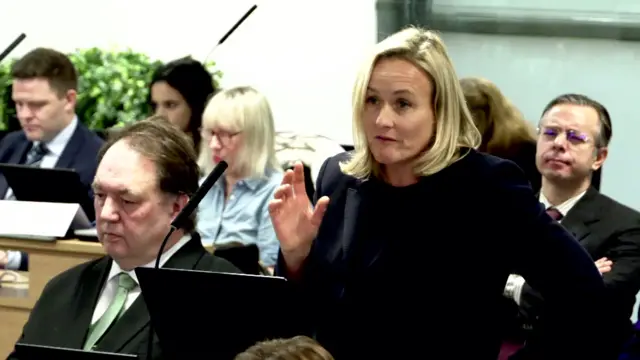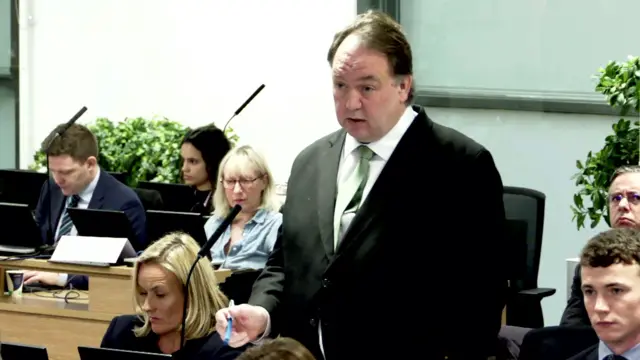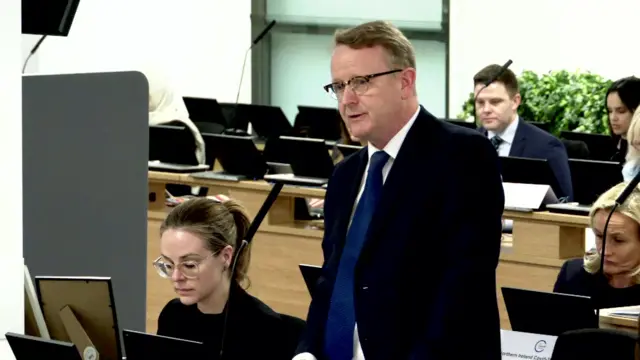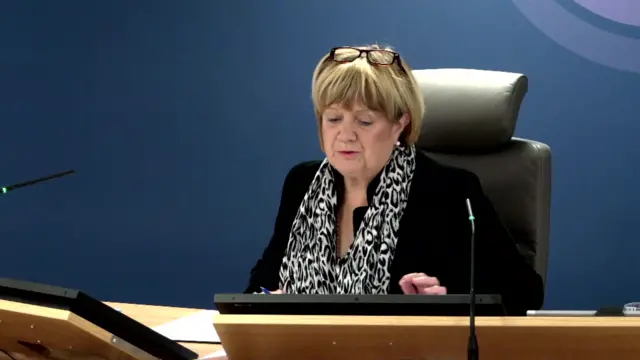Welsh representation in Sage should have happened earlier - Whittypublished at 12:18 GMT 22 November 2023
 Image source, Crown Copyright
Image source, Crown CopyrightWe're now on to Kirsten Heaven, who is asking questions for the Welsh Covid-19 bereaved families for justice group.
Heaven is asking about the very early days of the pandemic. She says there was no Welsh representation until 5 March 2020, the 13th Sage meeting on Covid.
She asks if he agrees it indicates that the Welsh government were not included when they should have been.
Whitty says it was a chaotic starting point and if he was in that situation again they would have included them much more quickly.
Having input from Welsh scientists was undoubtedly a benefit, Whitty says, and provided a "useful challenge" in general.






